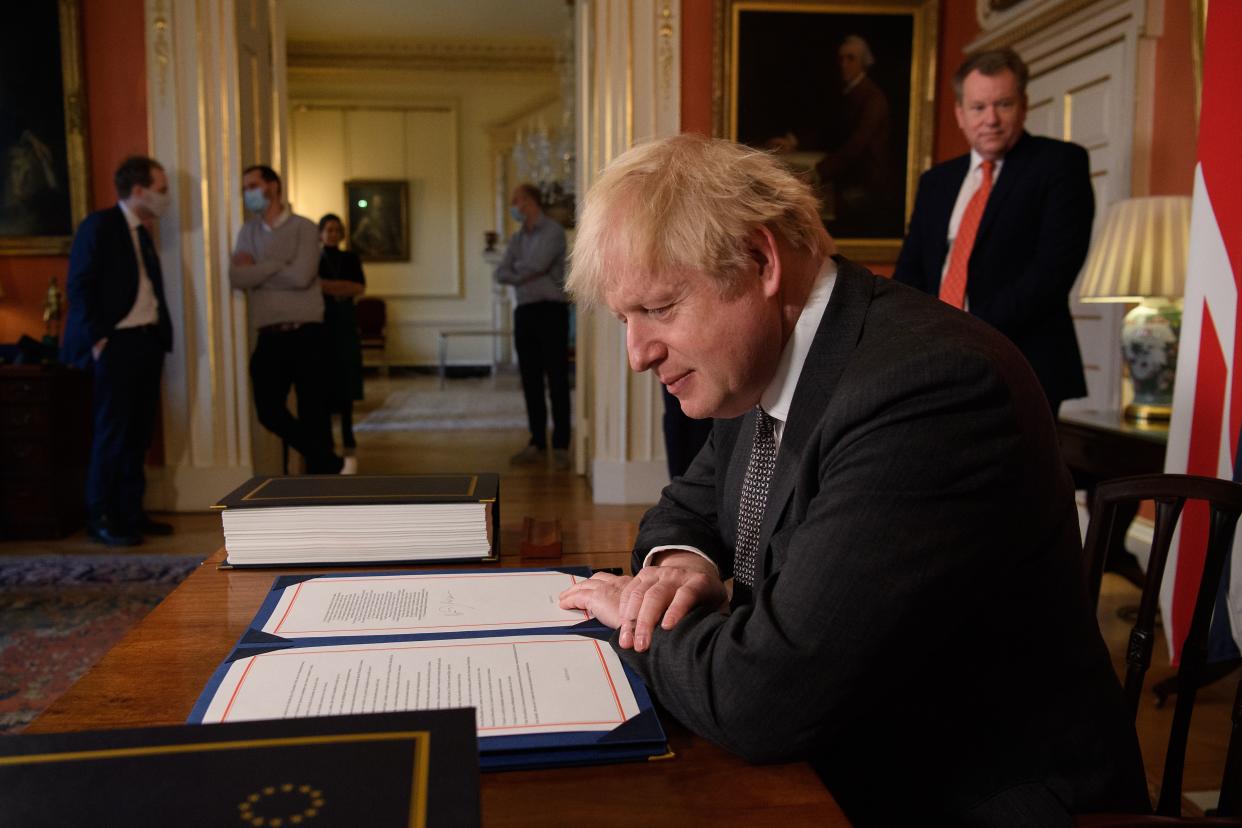Experts warn 'Alice in Wonderland' Brexit deal is unstable
Experts are warning the Brexit trade deal is "fiendishly complicated" and "very unstable," with constant potential for disputes and threat of tariffs causing fresh uncertainty for firms.
Prime minister Boris Johnson said after signing the new agreement it meant “certainty for business,” ensuring continued tariff-free trade and preventing no-deal disruption this month.
But Catherine Barnard, a Cambridge University professor specialising in the EU and labour law, sounded the alarm over the details of the 1,246-page agreement on Wednesday.
Giving evidence to a committee of MPs, she said the deal in fact created “quite a lot of difficulties for business,” as it had not completely eliminated the risk of tariffs.
Barnard said there were many ways the agreement could be brought to an end by both sides, including the UK terminating it at a year’s notice.

Both sides would then likely trade on World Trade Organisation (WTO) terms, including steep tariffs for UK exporters from carmakers to lamb farmers. Tariffs are taxes governments can levy on imports, often to protect their own industries from competition.
Meanwhile a review will be held every five years, and Northern Ireland’s Assembly has the chance to vote down part of the arrangements in four years’ time.
Further uncertainty lies over both sides’ ability within the deal to impose tariffs in retaliation for breaches of its terms, which Barnard said could be “pretty painful, pretty quickly.” Such retaliatory tariffs could occur if Britain sought to diverge from certain EU regulations on labour standards or other areas.
The lack of stability was “a more fundamental concern about this deal than anything else,” she said.
“If you’re a car manufacturer and you’re thinking of investing in new plants…you don’t know whether tariffs are going to be imposed, either because the deal is brought to an end, or because there’s going to be cross-retaliation.”
READ MORE: Firms react as UK and EU strike historic trade deal
The finer details of the deal and how it will work in practice have left even experts summoned by the Commons committee on UK-EU relations scratching their heads, however.
Barnard said the full legal document was “fiendishly complicated” and had a “slightly Alice in Wonderland quality about it—nothing appears quite as it first looks.”
“The devil is always in the detail,” she said. “For businesses who are actually going to have to operationalise it, there are real challenges.
“The urgency now is to give operational guidance to businesses, who have got to get their head around how to comply with this and operate legally.”
Sam Lowe, a senior research fellow at the Centre for European Reform, told MPs one example of “just how confusing” the deal was is that Britain would have four different ways to challenge the EU if its members were ‘dumping’ cheap steel in the UK.
Barnard added: “This treaty is absolutely riddled with provisions on disputes, and they vary quite a lot. It does feel a bit like the two sides were mating porcupines—you do it at arm’s length, very carefully and there’s a lot of suspicion.”
Another witness, Raoul Ruparel, ex-adviser to former prime minister Theresa May, also highlighted the heightened risk of damaging trade disputes. “Given the complexity and political nature of some of these areas, and the ability to take quick remedial action, there is always the risk for a tit-for-tat scenario emerging.”
But Lowe said both sides would be wary of being the first to trigger so-called “rebalancing measures” against the other, precisely as it risked “cascading” into wider disputes. “My hope is this is a bit like the argument people make in favour of nuclear weapons—you have this tool so you may not have to use it.”
"I think this #Brexitdeal is very unstable and I say that because there are so many ways that this trade agreement can be brought to an end." @CSBarnard24@cambridgelaw giving evidence on @CommonsFREU
WATCH 📺👇https://t.co/PdH9XouVMhpic.twitter.com/aIbVKpqxgQ— The UK in a Changing Europe (@UKandEU) January 6, 2021


